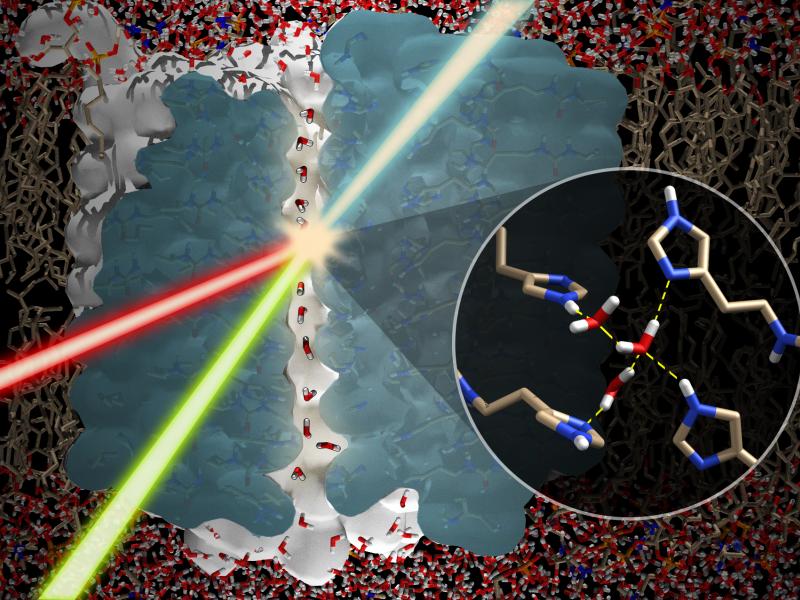
Graduate Program Director: Todd Przybycien
Student Services Administrator: Marylouise Dowd
The Ph.D. degree represents the highest level of academic preparation. With it, a student can expect to maintain technical competence and contributions throughout a professional career. It is usually the preferred degree for research and development in industry and government and for teaching. Doctoral studies emphasize independent research under the guidance of a research advisor in a field related to Chemical and Biological Engineering, culminating in the writing of a thesis document and its defense in a presentation to the department and the thesis committee. Financial support typically comes from fellowships, research assistantships, teaching assistantships, or a combination.
Within the Chemical and Biological Engineering Department, 72 credits of graduate-level studies, including the dissertation, are required for a Ph.D. The emphasis is on advanced study in a specialty with major focus on the dissertation. A doctoral student must pass a comprehensive examination, prepare a dissertation proposal and the dissertation itself, and present and defend the dissertation.
Applying to the Doctoral Program
For applications and instructions for applying to our Doctoral program, please visit Graduate Admissions.
Key aspects of the application include: academic performance as an undergraduate Chemical Engineering student, personal statement describing interests and career goals, GRE scores (the chemical and biological engineering department's policy regarding the GRE requirement can be found on the graduate application website - https://admissions.rpi.edu/graduate/masters-and-phd-applicants), and at least two letters of recommendation. Other aspects, such as undergraduate research or MS degree or industrial experience are viewed favorably, but are not required. Most of our PhD students have an undergraduate degree in Chemical Engineering; however, occasionally students with degrees in related fields (e.g., materials science, biomedical engineering, chemistry, polymer science/engineering, biotechnology) are accepted into our PhD program. Initial screening of completed applications by the departmental graduate admissions committee begins in early January each year, and continues until roughly February. The deadline for acceptance of our offers is usually April 15th each year.
The First Year
Advisor assignment:
Doctoral students in the incoming (first year) class do not have a pre‐assigned advisor. Advisor assignment takes place in the first semester and is designed to most effectively match student interests and talents with the research needs of faculty to work on externally funded projects.
Coursework:
Following is a typical coursework expectation for the first year.
Fall semester: First year students are expected to take four courses and two seminars. These include mandatory courses:
- Thermodynamics (CHME‐6570: Chemical and Phase Equilibria)
- Mathematics (CHME-6610: Mathematical Methods in Chemical Engineering)
- Chemical Engineering Seminar
and two additional elective courses.
Spring semester: Students are expected to take two two courses and one seminar in the Spring semester.
- Advanced Transport Phenomena (CHME-6510: Advanced Transport Phenomena 1)
- Chemical Engineering Seminar
and one to two elective courses. Selection of which elective courses to take is made after consulting with a research advisor.
GPA
Doctoral students are required by the Rensselaer Graduate School to maintain a minimum GPA of 3.0. Students not meeting this requirement will be dismissed from the program.
Qualifying Examination
The qualifying exam is a key milestone in the Ph.D. program that is meant to assess the student’s promise for success during training to become an independent researcher. The examination is based on research the student conducts during their first year of Ph.D. study and comprises a written report and an oral presentation with an extended question and answer session. The examination committee will assess the student’s abilities in several areas: ability to express themselves well in written and verbal form; understanding of their project and of the associated relevant science, engineering and chemical engineering background knowledge; understanding of research tools used, results expected and obtained, and ability to draw conclusions; ability to set own work in the context of what has been done by others; ability to see the path forward in the research project; and poise in participating in scientific and technical discussions. This exam is conducted in the week prior to the start of classes for the second year of study.
Maintaining a graduate GPA of at least 3.0, finding a research advisor, and successfully completing the qualifying exam represent three important steps in becoming a PhD candidate at Rensselaer in the first year.

